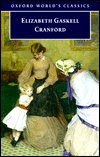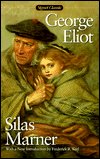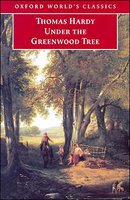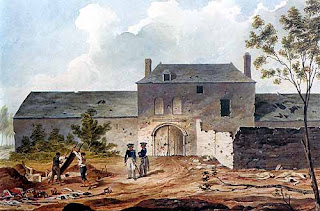 Last week I blogged about favorite books when I was a kid including at least one writer loathed by teachers. That got me thinking about books forced upon me at school that nearlyput me off the authors for life. And in fact I recently re-read one of them, Cranford, and loved it (thanks, Pam Rosenthal, for suggesting it). I was wondering what other books, or authors, others encountered at the wrong time and place, school or elsewhere, and how you’ve come to terms–or not–with them.
Last week I blogged about favorite books when I was a kid including at least one writer loathed by teachers. That got me thinking about books forced upon me at school that nearlyput me off the authors for life. And in fact I recently re-read one of them, Cranford, and loved it (thanks, Pam Rosenthal, for suggesting it). I was wondering what other books, or authors, others encountered at the wrong time and place, school or elsewhere, and how you’ve come to terms–or not–with them.
Cranford by Mrs. Gaskell was chosen by educators for its length, I think. It’s a very short novel, mainly a series of vignettes about life among the spinsters of a small provincial English town in the 1840s. I can’t really find any other reason to inflict it on a bunch of teenage girls who were fantasizing about marrying John, Paul, George, or Ringo. We were totally clueless about what the novel was even about or when it was set. I had the vague impression it was set in America, as there was a reference early on to “the railroad” and not railway–apparently an early Victorian term. I think we’d have responded much better to Wives and Daughters (yes, I’m always going on about Wives and Daughters), which is so romantic (but long), and with a decidely modern outlook on mother-daughter relationships. And then there’s always the hero and his famous knobstick in North and South (which I tried to re-read recently but found heavy going ).
).
Continuing the catalogue of literary disasters, we were also inflicted with Silas Marner by George Eliot. Guess what: it’s short. It’s a very difficult book. It’s particularly tedious if you’re trying to guess the inseam measurement of Mick and the boys. Now I think we would have loved the teenage angst of Mill on the Floss (not my favorite), or Dorothea and her toyboy Ladislaw in Middlemarch. Or even the uberhot Daniel Deronda (though he is fairly boring) and naughty Gwendolyn Harleth.

Sadly, Thomas Hardy was represented by Under the Greenwood Tree. I still have no idea what it was about. I remember a lot of smock-clad yokels pontificating away about life, the universe, and everything, and a scene the teacher (bless her heart) described as being extremely risque, when the heroine appears at an open window with her hair down (the hopeless tart). It’s so sad. To think we could have had the rampant romanticism of Tess of the d’Urbervilles or Far from the Madding Crowd (both made into terrific movies).
Tell us about your near misses!



